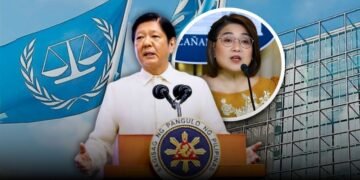Amid the growing spotlight on bribery and “gift-giving” in flood control scandals, local governments that have enforced strict no-gift rules are drawing renewed public respect for showing that ethical governance can start at the local level.
Naga City is at the center of this renewed push. Former Vice President and now Mayor Leni Robredo issued Executive Order No. 58 on October 22, institutionalizing a Comprehensive No Gift Policy that applies to all officials and employees of the city government. The order bans the direct or indirect solicitation or acceptance of any gift, gratuity, favor, entertainment, loan, discount, service, or anything of monetary value connected to official functions.
The EO also bars indirect acceptance through family members, close friends, housemates, agents, or any person acting on behalf of the official. It identifies high-risk areas where strict adherence is crucial: procurement and contract management, permitting and licensing, inspections and enforcement, recruitment and promotions, and financial transactions. Gifts from regulated entities—those applying for or holding permits, licenses, or contracts with the city—are explicitly prohibited, including sponsored travel or entertainment.
While broad in scope, the EO allows strictly limited exceptions such as unsolicited tokens of nominal value, gifts from close family given purely out of personal affection, and protocolary gifts exchanged during official functions, provided they are recorded. Institutional donations are only allowed if made through formal agreements and subject to public disclosure.
A reporting and disposition mechanism is built into the policy. Any gift that exceeds nominal value or falls outside the exceptions must be reported to the Accountability Review Committee (ARC) within five working days. The ARC is tasked to document, register, and dispose of the gift appropriately. All offices are required to display “No Gift Policy” posters, include “No Gift Clauses” in contracts and bid documents, and actively inform the public of the prohibition.
Violations carry real consequences—administrative penalties such as reprimand, suspension, or dismissal, and potential criminal prosecution under Republic Acts 3019 and 6713 and other anti-graft laws.
Robredo explained, “The institutionalization of a comprehensive ‘No Gift Policy’ is a safeguard against conflicts of interest, corruption, and even the appearance of partiality or undue influence. Public office is a public trust, and we must always uphold that trust.”
In Kidapawan City, Mayor Pao Evangelista enforced a no-gift policy immediately upon assuming office, covering both city and barangay officials. “We are paid by the government; gifts and tips are not necessary to perform our tasks,” Evangelista said. His transparency drive includes livestreaming all procurement sessions through the city’s Bids and Awards Committee to allow real-time public monitoring of transactions.
Evangelista also banned the use of titles like “Honorable” for elected city officials, emphasizing that public service is a duty, not a status symbol. Likewise, the posting of names and photos of politicians on publicly funded projects has been prohibited.
The city’s policy framework is designed to reduce opportunities for political patronage and to reinforce impartiality in government transactions. The administration’s governance reforms are closely tied to supporting farmers, fisherfolk, cooperatives, 4Ps beneficiaries, and other community sectors, making transparency a working principle rather than a slogan.
The tightening of rules is not limited to local cities like Naga and Kidapawan. Vice President Sara Duterte has the same policy in place in her office, continuing a strict no-gift stance she enforced even during her time as mayor of Davao City. This was confirmed by her ally, Senator Robin Padilla, in a Facebook post highlighting her long-standing adherence to the rule. Padilla also noted that Duterte maintains this policy even when she is abroad, emphasizing that she does not accept gifts or favors in any form.
That governance approach is consistent with how Davao City has also led reforms to remove personal credit or branding from public service. It was one of the first LGUs to stop placing politicians’ names and faces on donations and relief goods during Sara Duterte’s mayoralty.
The practice was recently reinforced through Executive Order No. 09, Series of 2025, signed on June 19 by Vice Mayor Sebastian “Baste” Duterte, stepping in for former President and Mayor Rody Duterte.
The EO orders the removal of all signages, billboards, and tarpaulins bearing the names or faces of officials on government projects and donations, aligning with DILG Memorandum Circular 2010-101. It further institutionalizes Davao’s long-time stance against using public service for personal or political promotion.
Sen. Padilla has publicly pointed to Sara Duterte’s strict adherence to these governance principles as an example of ethical leadership.
These local initiatives are firmly anchored on long-standing national laws meant to curb bribery and influence-peddling. Republic Act 6713 or the Code of Conduct and Ethical Standards for Public Officials and Employees requires all public servants to avoid accepting gifts, favors, or benefits that may influence their official actions.
Republic Act 3019, the Anti-Graft and Corrupt Practices Act, penalizes the act of receiving any consideration in connection with a government transaction. Presidential Decree 46 goes even further by prohibiting public officials from accepting gifts on any occasion, including holidays or celebrations, regardless of intent.
What sets Naga, Kidapawan, and Davao City apart is that they are applying these national laws through concrete local action—turning anti-graft provisions into day-to-day governance measures. By removing avenues for influence, cutting political branding, and institutionalizing accountability, these LGUs are closing the gray areas where bribery and corruption often thrive.
If the same level of enforcement were applied at the national level, the systemic corruption exposed in flood control projects and other big-ticket programs would face far less space to operate.












